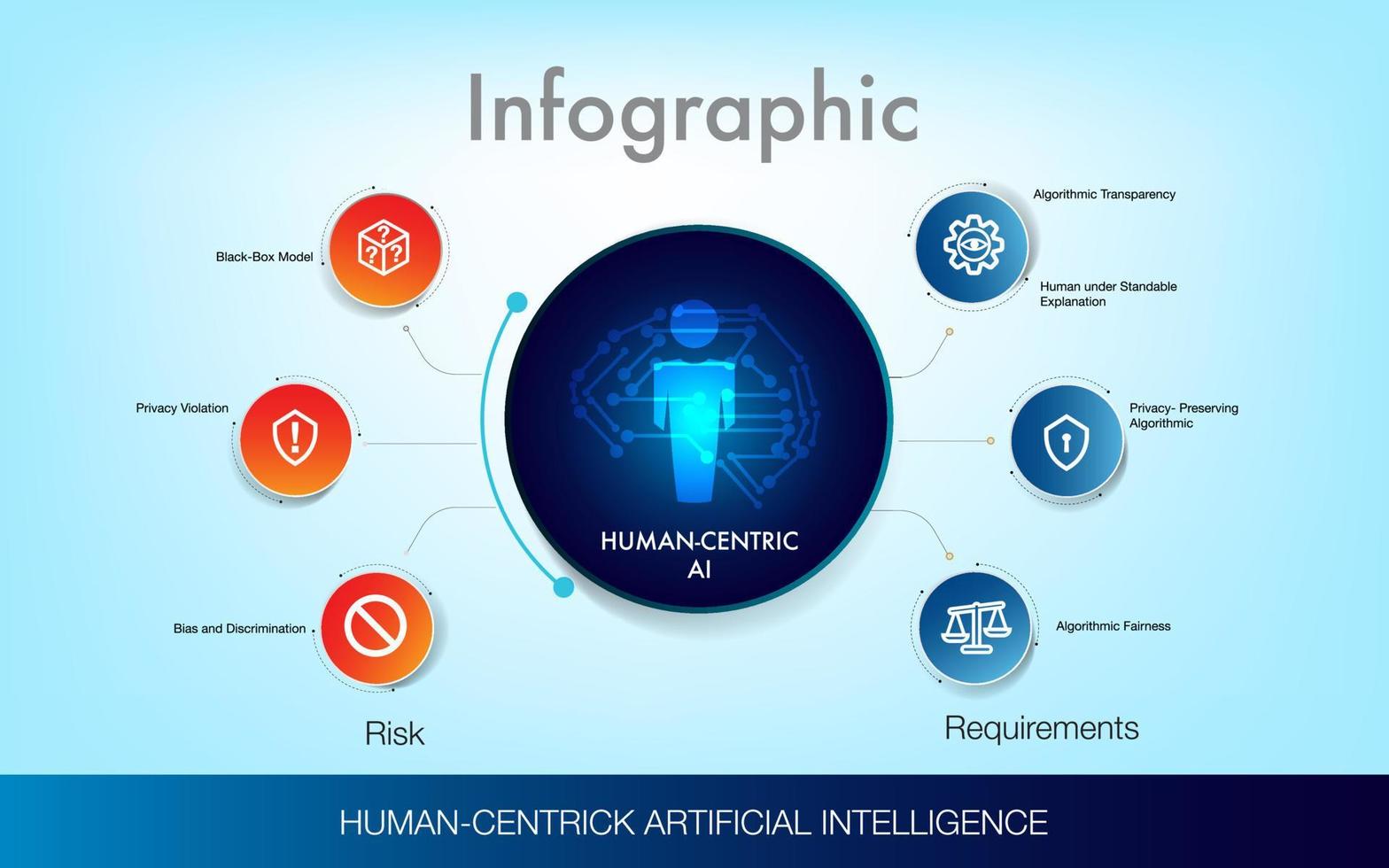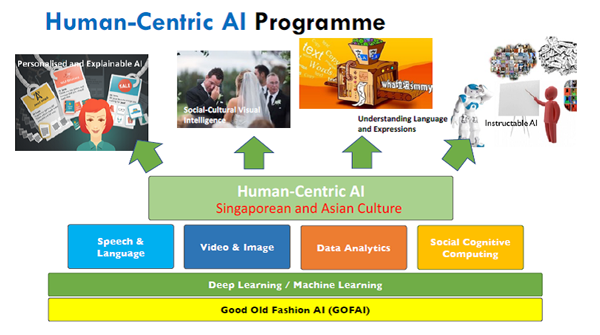User-First AI Development: Browsing the Digital Landscape with Human Centric AI
Wiki Article
Human Centric AI as a Driver for a Much More Understanding and comprehensive Culture
Over the last few years, the growth of expert system (AI) has revolutionized various sectors, making tasks a lot more reliable and enhancing overall performance. The emphasis has moved in the direction of human-centric AI, which intends to develop systems that focus on inclusivity and compassion. This shift has extensive ramifications for culture as AI has the possible to cultivate a more inclusive and empathetic culture. By integrating human values and viewpoints into AI systems, we can get rid of predispositions, advertise diversity, and make sure that modern technology benefits all people, no matter their background or capabilities. This introduction checks out the significance of human-centric AI in enhancing inclusivity, cultivating compassion, and ultimately acting as a driver for an extra fair and harmonious future.The Importance of Human-Centric AI
The importance of human-centric AI depends on its ability to prioritize the demands and well-being of people, cultivating a much more inclusive and understanding culture. Typical AI systems have actually concentrated mostly on effectiveness and performance, commonly overlooking the human aspect (human centric ai). With the development of human-centric AI, there is a change towards creating systems that take into account the distinct needs and preferences of individuals.By placing humans at the leading edge, human-centric AI intends to produce innovation that is much more intuitive, adaptable, and responsive. This method identifies that AI ought to be a device to boost human capabilities instead than replace them. It seeks to equip individuals by offering individualized experiences and remedies that satisfy their details conditions.
Moreover, human-centric AI advertises inclusivity by making sure that modern technology comes to all. It deals with problems associated with discrimination, prejudice, and personal privacy problems, making AI systems more equitable and reasonable. By engaging and taking into consideration varied viewpoints with a wide variety of stakeholders, human-centric AI promotes a much more comprehensive culture where everyone has a chance to gain from technical innovations.
Moreover, human-centric AI promotes compassion by allowing machines to comprehend and react to human emotions, needs, and worths. It motivates the growth of AI systems that can empathize, communicate, and team up effectively with humans, bring about more purposeful interactions and partnerships.
Enhancing Addition With AI Technology
Enhancing inclusion with AI innovation entails leveraging its capabilities to deal with barriers and encourage marginalized areas. AI can play a critical function in producing a much more inclusive society by offering solutions to long-lasting obstacles faced by marginalized teams.AI can likewise assist in offering accessible innovations for individuals with specials needs. With computer system vision and all-natural language handling, AI can allow visually damaged people to browse their atmosphere more separately. Voice recognition technology can encourage individuals with physical specials needs to connect with electronic tools utilizing voice commands.
Additionally, AI can help determine and address predispositions and discrimination. By assessing big datasets, AI algorithms can identify patterns of prejudice and discrimination in numerous domains, such as work and criminal justice. This information can after that be used to create policies and treatments that promote equivalent opportunities and fair therapy.
Compassion and Recognizing in AI Solutions
Attending to the requirement for empathy and understanding in AI systems is essential for fostering an extra compassionate and comprehensive culture. As AI ends up being progressively integrated right into our every day lives, it is vital that these systems are developed to not only carry out jobs successfully but additionally to respond and recognize to human emotions and requirements. Compassion in AI systems can enable them to far better serve people with diverse backgrounds, capacities, and choices, making sure that their distinct perspectives and demands are considered.Executing empathy in AI systems includes establishing formulas that can recognize and translate emotional cues from human communications (human centric ai). This calls for training AI designs on substantial amounts of data to properly recognize and comprehend emotions revealed through facial expressions, intonation, and body language. In addition, AI systems require to be configured to react with empathy and compassion, considering the emotion of the individual and adjusting their responses as necessary
By including compassion and understanding into AI systems, we can create innovation that not only assists with jobs yet additionally sustains and boosts individuals. Empathetic AI chatbots can provide psychological assistance and assistance to those experiencing psychological wellness obstacles. Understanding AI can aid bridge interaction gaps between individuals with different social backgrounds or language obstacles, fostering understanding and compassion throughout varied areas.
Conquering Prejudices With Human-Centric AI
To advertise a more compassionate and inclusive culture, human-centric AI plays a vital role in overcoming predispositions. Predisposition, whether mindful or unconscious, is a prevalent concern that influences decision-making processes in different domains, including education and learning, work, and medical care. By leveraging human-centric AI, we can address and mitigate these biases, guaranteeing equitable and fair end results for all people.
One manner in which human-centric AI overcomes prejudices is with explainability. By offering transparent explanations for its decision-making procedures, AI systems can aid users recognize and challenge biases that may be present in the formulas or data. This equips people to make informed choices and take appropriate activities to counteract prejudices.
Moreover, human-centric AI enables tailored experiences that cater to private distinctions and preferences. By comprehending and adapting to customers' special features, AI systems can prevent predispositions that may develop from stereotypes or generalizations.
Developing a Much Better Future With AI and Empathy
Human-centric a fantastic read AI, driven by compassion, holds the possible to shape a future that is much more compassionate and inclusive - human centric ai. As AI innovations continue to advance, there is a raising emphasis on incorporating compassion right into their systems. By incorporating compassion, AI can better respond and comprehend to human feelings, requirements, and experiences. This has substantial ramifications for numerous industries, including customer, health over here care, and education solution.
In education and learning, AI can aid create a more inclusive learning setting. Understanding AI systems can adapt to individual students' knowing designs and supply tailored recommendations and comments. This can empower students with different capabilities and backgrounds to reach their full potential.
Furthermore, in customer go to this website support, AI with empathy can enhance the total customer experience. By responding and understanding to consumers' emotions, AI can give even more customized and empathetic support, leading to greater consumer complete satisfaction and commitment.
Verdict
In verdict, human-centric AI has the potential to serve as a driver for a more inclusive and empathetic culture. By focusing on the demands and perspectives of people, AI modern technology can boost addition and overcome prejudices.The focus has actually shifted in the direction of human-centric AI, which aims to produce systems that prioritize inclusivity and compassion. With the advent of human-centric AI, there is a change towards developing systems that take into account the special demands and choices of individuals.
Attending to the demand for compassion and understanding in AI systems is crucial for fostering a much more empathetic and comprehensive culture. Compassion in AI systems can allow them to much better serve individuals with diverse histories, abilities, and preferences, ensuring that their unique point of views and needs are thought about.
Human-centric AI, driven by compassion, holds the potential to shape a future that is a lot more caring and comprehensive.
Report this wiki page